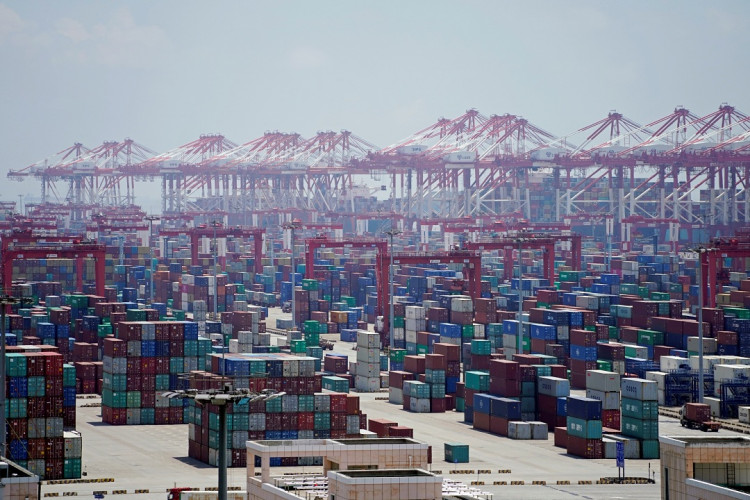China 2020 negative list relaxes foreign-investment caps
On June 24, China's National Development and Reform Commission and the Ministry of Commerce issued two measurement documents to the public, regarding the special management of foreign investment across China and in the Pilot Free Trade Zones (Pilot FTZs). The negative list for foreign investment is shortened to 33 items, down from 40 in 2019. For the eighteen Pilot FTZs, it is reduced to 30 items.
It was the fourth amend to the negative list since 2017, with the aim of enhancing the openness in the sectors of service, manufacturing and agriculture under the domestic and global economic effects of the Covid-19 pandemic.
The amended list would bring changes such as relaxing the limit of foreign ownership of commercial vehicle manufacturers. Foreign investment in wheat cultivation and seed production would be relaxed to 66%. Prohibition on foreign investment in smelting and processing of radioactive minerals and nuclear fuel production would be lifted across China.
In the Pilot FTZs, a pioneer role of China's reform and opening-up, regulations prohibiting foreign investment in prepared formulas of traditional Chinese medicine would be lifted. Additionally, exclusively foreign-invested enterprises would be allowed to run educational institutions.
The First Made-in-china mRNA Vaccine Candidate For The Covid-19
China's Academy of Military Medical Sciences announced the breaking-through study that ARCoV, a mRNA (messenger RNA) vaccine candidate it developed for the Covid-19, was approved to enter clinic trial. It is the first mRNA vaccine developed in China, comparable to the mRNA vaccines developed by US company Moderna and German company CureVac.
Different from conventional vaccines that train the body to respond to the proteins produced by a virus or bacteria, mRNA vaccines trick the body to produce some of the viral proteins and trigger the innate immune system to provide an extra layer of defense without the need for adjuvants, pharmacological agents that improve the immune response of a vaccine. So far, most work using mRNA has focused on cancer.
With a unique means of production, mRNA vaccines require higher technical thresholds than the traditional ones. But an approved mRNA vaccine for the Covid-19 could be safer and require a shorter manufacturing process.
China's Academy of Military Medical Sciences expects to soon launch the phase-1 clinical trial of ARCoV in Zhulan Hospital in Hangzhou.
Online Import And Export Fair Promoted In China To Eradicate Extreme Poverty
The 127th China Import and Export Fair, a.k.a. the Canton Fair, concluded on June 24. About 26,000 domestic and foreign enterprises attended the ten-day event, mainly relying on live-streaming to promote and trade. Consumer electronics, household and gardening products traded the best, with GMV increasing by 300% year-on-year.
The first online Canton Fair brought business opportunities to middle or small-scaled exhibitors who were eager to develop business overseas. A metal & materials firm in Fujian prepared English, Spanish, Japanese and French translators for the online exhibition. An import and export firm in Chongqing gained orders of intent from Morocco, Netherlands and Spain.
China's government hopes to eradicate extreme poverty in 2020. In an ongoing endeavor to support enterprises from poor regions, the Canton Fair has provided more than 5000 exhibit booths to over 3000 enterprises from poor regions since 2017. It also charges no exhibition fees to attract attendees. The number of exhibitors from poor regions increased 62.3 percent year-on-year in the online fair this year.
Tianjin Hosted The Fourth World Intelligence Congress
Tianjin hosted the Fourth World Intelligence Congress, a.k.a. the WIC 2020, on Tuesday and Wednesday. This year saw 148 investment projects worth US$11.3 billion dollars signed through online events, among which 17 projects were foreign-funded, worth US$1.59 billion dollars.
The event theme was "Intelligent New Era: Innovation, New Energy and Ecology". These projects covered the sectors of new infrastructure construction, next generation information technology, high-tech services, new materials, new energy and high-end equipment manufacturing.
Tianjin launched a total of RMB10 billion (US$1.4 billion dollars) investment funds for intelligent manufacturing in the past two years. One-fifth of the Tianjin enterprises above the designated size are involved in intelligent manufacturing.
The congress presented Tianjin's achievements in intelligence and science development, including supercomputers and the world-first brain-computer interface chips (BCIs), a.k.a. Brain Talker. Tianjin government also signed strategic cooperation agreements with Tencent and Alibaba.
The congress also concluded China's development of automated intelligence technology during the Covid-19 pandemic. Over the past five months, 1986 enterprises relevant to unmanned retail were registered, an increase of 29.7% year-on-year. There were 7167 new enterprises related to industrial robots registered, an increase of 53% year-on-year.
Shares In China's largest Electronics Retailer Skyrocket
Beijing Municipal High People's Court announced on Wednesday that Huang Guangyu, the ex-chairman of Gome Group, was released from jail on probation. On the same day in the Hong Kong stock market, Gome Retail's shares rose by 24.64%, ending the day 17.4% higher; Gome Finance & Science shares rose by 68.92%, ending the day 47.30% higher.
Huang was convicted of 14 years and sentenced for various economic crimes including corporate bribery, insider trading and illegal stock market manipulation.
In June 18, 2012, the Beijing No. 1 Intermediate People's Court shortened his prison sentence by ten months for good behavior. On May 31, 2015, the Beijing No. 2 Intermediate People's Court further shortened his sentence by eleven months. Huang's release was expected in Feb 16, 2021. There was no sign of release in advance.
As one of China's largest and time-honored brick-and-mortar electronics retailers with over 2,600 stores across China, 30-year-old Gome Retail is in the deep mire of financial loss. According to the annual financial report released by Gome Retail, its revenue in 2019 was RMB59.48 billion (US$8.4 billion dollars), only one-fifth of its rival Suning. It reported a third consecutive year of financial loss.
Following the step of Suning's alliance with Alibaba, Gome Retail started its e-commerce road-map this year. Over the past two months, it formed strategic partnerships with pioneer e-commerce platforms such as JD and Pinduoduo.





